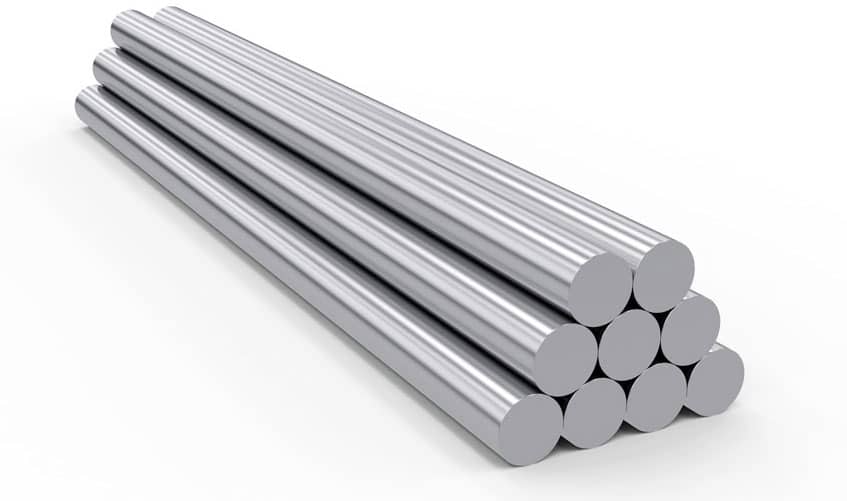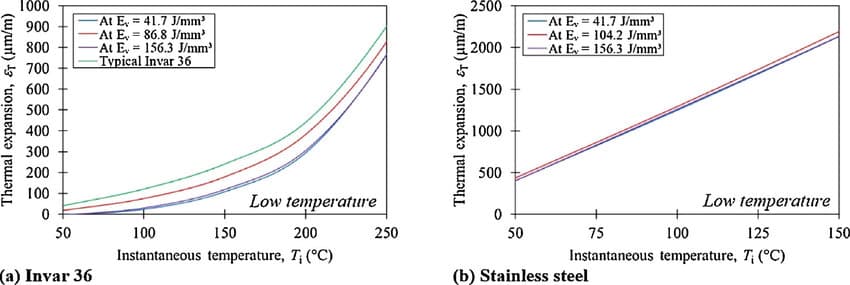Invar 36, containing 36% Nickel, is a unique alloy used in markets ranging from scientific instruments to industrial machinery. Why is Invar 36 so special, and is it readily available? These are the questions we explore in this in-depth article about the Nickel-iron alloy, also known as FeNi36. Naturally, we also discuss its machinability, one of the primary concerns for many of Metel’s customers.
Metel is thrilled to offer direct availability of Invar 36 from stock, ensuring immediate delivery for our customers. Our inventory primarily consists of round bars, which are readily available to meet the immediate needs of our customers, with efficiency and reliability. Additionally, we offer a wide range of other forms, including sheets, square bars, tubes, and more, all of which can be delivered directly from the Nickel factory. This comprehensive approach allows us to meet diverse requirements with tailored solutions while maintaining the high-quality standards our customers expect.
“Machinability is a primary concern for our customers when selecting Invar 36,” says Nick Kesteloo, manager at Metel. “We have had customers switch to us and be amazed by the superior milling experience with our Invar 36. The forging and annealing we apply result in a more homogeneous metal, significantly enhancing machinability. This tensuring that the quality of the alloy depends not only on its inherent properties but also on how it has been processed to meet high machining standards.”
ABOUT INVAR 36
Invar 36 stands out as a remarkable alloy with unique properties that make it indispensable for various high-tech industries. Discovered in the early 20th century by Swiss physicist Charles Édouard Guillaume, who was awarded the Nobel Prize in Physics for this, the Nickel-iron alloy—also known as FeNi36—is notable for its exceptionally low cocoefficient of thermal expansion. This property, practically unmatched by any other metal or alloy across a wide temperature range, has solidified the role of Invar 36 in applications where dimensional stability is crucial. Applications range from complex scientific instruments to large-scale industrial machines. The discovery not only marked a significant milestone in alloy development but also opened new avenues for technological advancement, highlighting the enduring importance of the alloy in the continually evolving field of special metals.
Invar Effect
The name Invar 36 comes from the alloy’s composition of 36% Nickel and 64% iron, resulting in an almost zero expansion due to temperature fluctuations. To a certain extent, of course, as when the temperature exceeds 200°C, the rate of expansion begins to increase, although it remains lower than that of many common metals. This phenomenon was called the ‘Invar effect’ because Invar 36 is the most striking example of this property. The Invar effect is the primary reason to select Invar 36 as the material for your components and is often used in:
Scientific instruments
-
- Aerospace
<liclass=”p3″>Telecommunications
- Transport of Liquid Gases
- Industrial Machinery Construction
UNIQUE COMBINATION: INVAR 36 AND GLASS
A typical application of Invar 36 in combination with glass is in the manufacture of precise optical instruments, such as telescopes, microscopes, and laser systems. In these applications, Invar 36 is used to create critical metal-to-glass seals and components that require exceptional dimensional stability over a wide temperature range. The use of Invar 36 in such applications enables the creation of optical systems with superior stability and precision, allowing for accurate observations and measurements that are crucial in scientific endeavors.research, navigation, and in various branches of engineering and technology.
AVAILABILITY AND COST
At Metel, Invar 36 is readily available. We maintain a significant stock of the alloy in our own warehouse and can deliver on short notice. As for pricing, it naturally fluctuates, but currently, the price per kilo of Invar 36 is approximately on par with that of Titanium Grade 5. This makes the alloy relatively economical, given its extraordinary properties.
Each batch is accompanied by the original factory certificate, the 3.1 certificate, detailing the mechanical properties and chemical analysis of the batch. This helps us, and our clients, ensure the consistency of the metal and the influence eto ensure workability.
Would you like to learn more about our special metals and the services we offer? Then contact us at 0416 – 724 800 or email n.kesteloo@metel.nl.
 +31 (0) 416 724 800
+31 (0) 416 724 800 info@metel.nl
info@metel.nl

